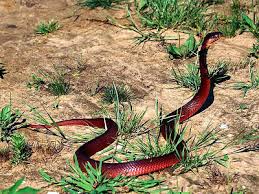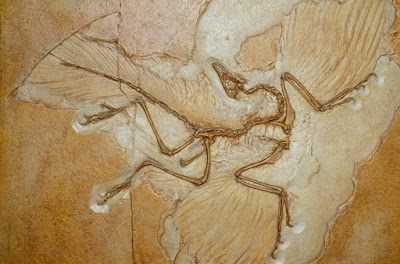Bats
Bats
There are more than 1,000 different kinds of bats, which makes
up around 20 per cent of all the known mammal species. Bats are amazing flying
mammals. Most species are nocturnal and emerge at night to feed on fruit or
insects. Some bats navigate in complete darkness using a sophisticated system
called echolocation.
Bats can fly because their front limbs have been modified
into wings. The wings are formed from a membrane of skin, called the patagium,
which stretches between the four long fingers of each limb and the side of the
bat`s body. Bats do not flap their entire wings like birds; instead, they flap
the long fingers that form the framework for the wings. This provides the lift
forces to fly around obstacles and chase down prey.
The family name for bats is “Chiroptera”, which comes from the
Greek Kheiro and pteron, meaning ‘hand wings’. There are two main groups of
bats are:-
1. Mega-bats, and
2. Micro-bats.
Mega-bats
As their name suggests, they are mostly larger species that feed
mostly on fruit, but also nectar and pollen. For this reason, they are also
known as fruit bats. They are also known as flying foxes because their large
eyes, pointed ears and long snouts make them look like foxes. Mega-bats live in
tropical rainforests, where they feed on the plentiful supply of fruit.
Micro-bats
They are much smaller than fruit bats. Most species hunt insects,
although some larger species will eat small fish, frogs or lizards. Three bat
species, the aptly named vampire bats, feed on the blood of other animals, including
humans. Micro-bats have small eye and rely on echolocation to find food. Although
their eyesight is not as well developed as that of mega-bats, their vision is
especially sensitive to low light situations.
Most micro-bats have very small eyes so they need another sense
to fly and locate prey in complete darkness. Here it is quite interesting to know
that, instead of eye, they rely on a technique called echolocation, which means
they can ‘see with sound’. As bats fly, they emit a series of clicks. The clicks
are high- pitched ultrasound waves that bounce off objects such as the side of
a cave wall or prey such as a moth. The bat detects the sound reflections or echoes
to find its way around or home in on its prey. A bat chasing a moth will listen
for the echoes getting closer together as it approaches, eventually homing in
and snatching up its victim. Micro-bats have special body features to help
detect the echoes. Some have long, pointed ears, which channel sound waves. Others
have a growth called a nose leaf on the face, which helps to focus sound.
Many species of bats are at risk. In tropical regions, farmers
are clearing the forests for agricultural land and wiping out populations of
flying foxes at the same time. Bats are also seen as pests in many countries
since they eat such large quantities of fruit. Some farmers have fumigated
roost sites to kill off bat numbers and protect their crops. Many people
associate bats with negative images, including blood sucking vampires and
vectors for disease.
Reference
Also See
• Parrots
• Bats
• Bears
• Birds
©
Don`t Kill Creatures of
Nature, You have No Right to Do That
Being Vegetarian, Love
Creature of Nature
Live and Give Space for
another Life
Save Nature
Love Nature

















Ahaa, its pleasant dialogue regarding this paragraph here at this weblog, I have read all that, so at this time me also commenting at this place.
ReplyDeletenice
ReplyDeleteGood stuff
ReplyDeleteIs this is Corona Carrier?
ReplyDeletebuy cheap cricket bats online
ReplyDeleteLooking for CA Cricket Bats? Check our range of best CA Cricket Bats available Online or In store from Western Sports Centre. Need help choosing you Cricketing needs , call Western Sports Centre
WHAT A BLOG ! MUST SAY THIS IS REALLY KNOWLEDGABLE BLOG. I REALLY LEARN A LOT FROM THIS BLOG.
ReplyDeletecar accessories shop near me
WHAT A BLOG ! MUST SAY THIS IS REALLY KNOWLEDGABLE BLOG. I REALLY LEARN A LOT FROM THIS BLOG.
ReplyDeletecar accessories shop near me
covid caused by these bats.
ReplyDeleteCool
ReplyDelete